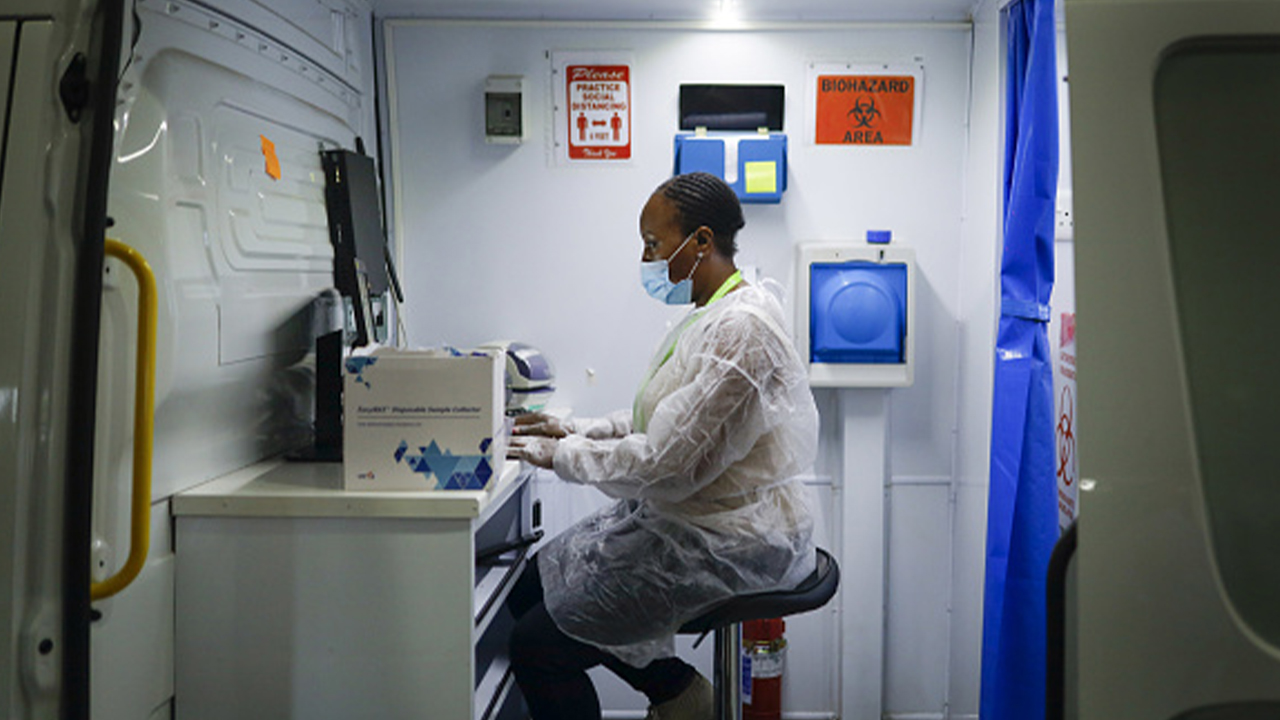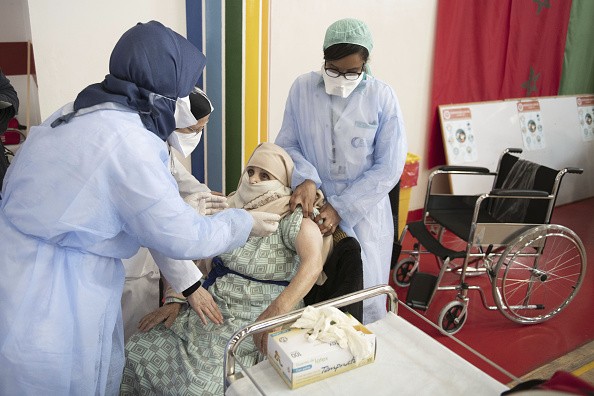
Editor's note: Hamzah Rifaat Hussain is a former visiting fellow at Stimson Center in Washington and currently serves as assistant researcher at Islamabad Policy Research Institute (IPRI) in Pakistan. The article reflects the author's opinions, and not necessarily the views of CGTN.
On Friday, International Monetary Fund (IMF) Chief Kristalina Georgieva urged rich countries and international institutions to provide more resources to the developing world. She said that 50 percent of the developing nations could confront sustained instability and protracted social unrest that could result in the "Great Divergence" and leave an imprint on societies for decades to come. The onus lies on the international community to act, devise policies and demonstrate collective responsibility to avert such scenarios.
While income divides, unequal vaccine distribution and accessibility have all been part of the mainstream international discourse, the IMF chief's remarks underline the importance of international institutions and richer nations in bridging divides. The Guardian reported that few countries in Africa will begin immunization until much later this year, despite the continent seeing one of the new variants of COVID-19.
Passivity on these realities could result in lost generations in the developing world that would have less to do with the pernicious effects of the pandemic, but more about the dearth of swift, shrewd policies that address loopholes and gaps. Vaccination efforts have been subjected to political squabbling as demonstrated in the AstraZeneca vs. EU case. This contributes to the greater inequality across the globe in terms of economic recovery, access to adequate health infrastructure and lagging behind on subjects such as digitalization.

Elder people receive coronavirus (COVID-19) vaccine during coronavirus vaccination campaign at Sidi Fateh Health Center in Rabat, Morocco, January 29, 2021. /Getty
Elder people receive coronavirus (COVID-19) vaccine during coronavirus vaccination campaign at Sidi Fateh Health Center in Rabat, Morocco, January 29, 2021. /Getty
So far COVAX, Chinese and Russian vaccination assistance has proven to be effective and much needed respite for the developing world. This trend, however, is not ubiquitous. Combating the pandemic also requires allocations through mechanisms like the Special Drawing Rights (SDRs) that the IMF chief mentioned, alongside COVAX, to provide resources to poorer countries to combat the pandemic.
It is noteworthy that the SDR played a key role in resuscitating the global economy in 2009 in the aftermath of the 2008 global financial crisis, but the Trump administration blocked it. Joe Biden does provide new hope that a new allocation can be operationalized for the benefit of impoverished populations across the developing world. However, his foreign policy speech on the fourth of February focused more on talking about the China challenge rather than the pandemic; and he has long-said that domestic politics would be his priority.
Development strategies which are impartial, unbiased and depoliticized are the key towards achieving sustainability for the pandemic stricken developing world. Financial allocations are undoubtedly important, but so is collective political will. Attempts to muzzle out perceived adversaries, both historically and in contemporary times, have resulted in greater divergence characterized by polarization and contrarian narratives, failing to focus on issues center to the global concern.
Tensions inflamed by the BBC against China and Ofcom against CGTN are a grand example of how avenues for dialogue and tolerance for diverse viewpoints has gone criminally missing. The media has a key role to play in ensuring that facts are promoted. Delinking politics from media and bringing out facts and figures is as important as depoliticizing the global environment or inoculation drives. The reality so far is that, amid attempts to muzzle out diverse voices, developing nations continue to become casualties with development funds dwindling by the minute.
As casualties mount, a lost generation will not be a far-fetched imagination. A 'Great Divergence' must be avoided at all costs.
(If you want to contribute and have specific expertise, please contact us at opinions@cgtn.com.)

